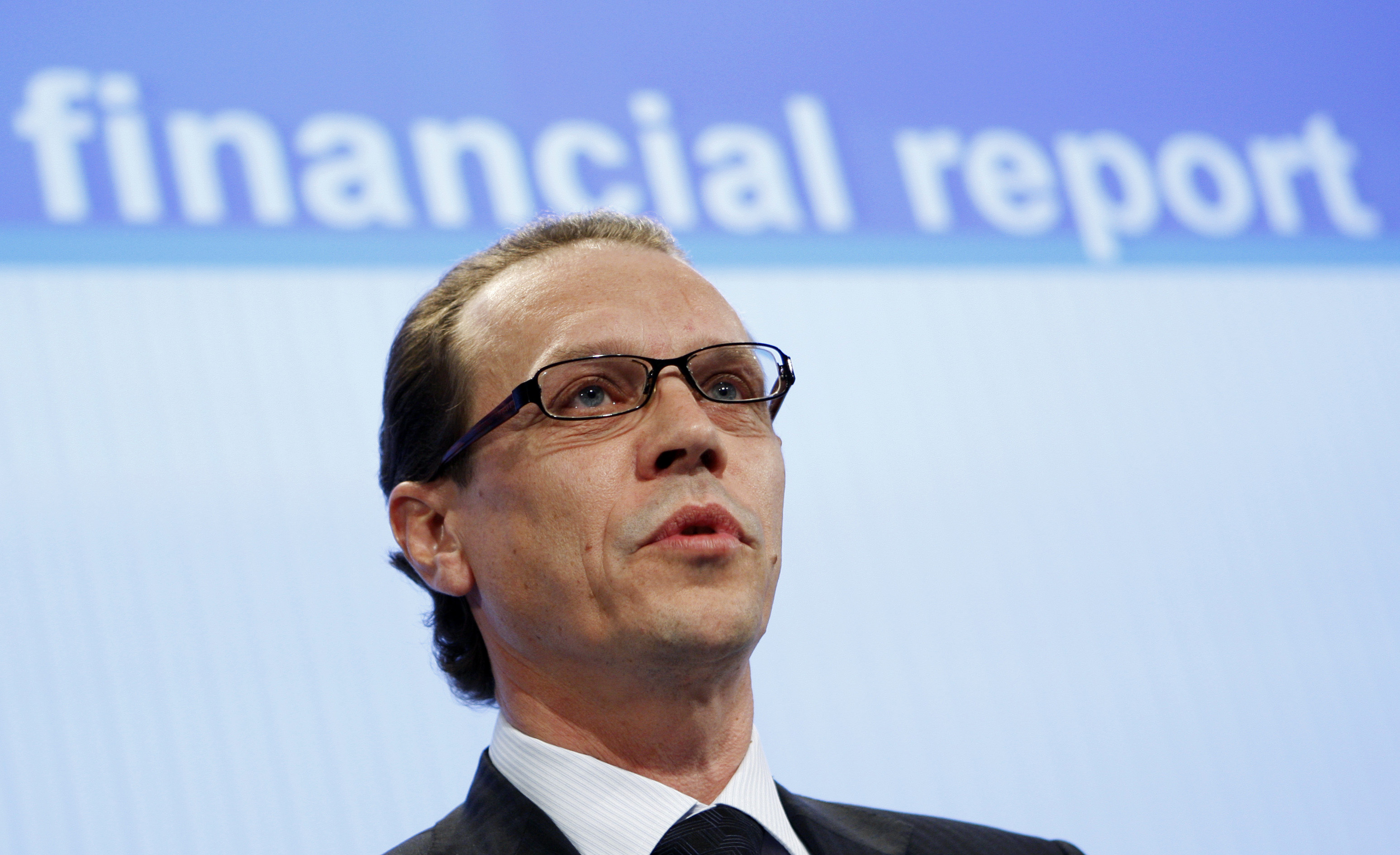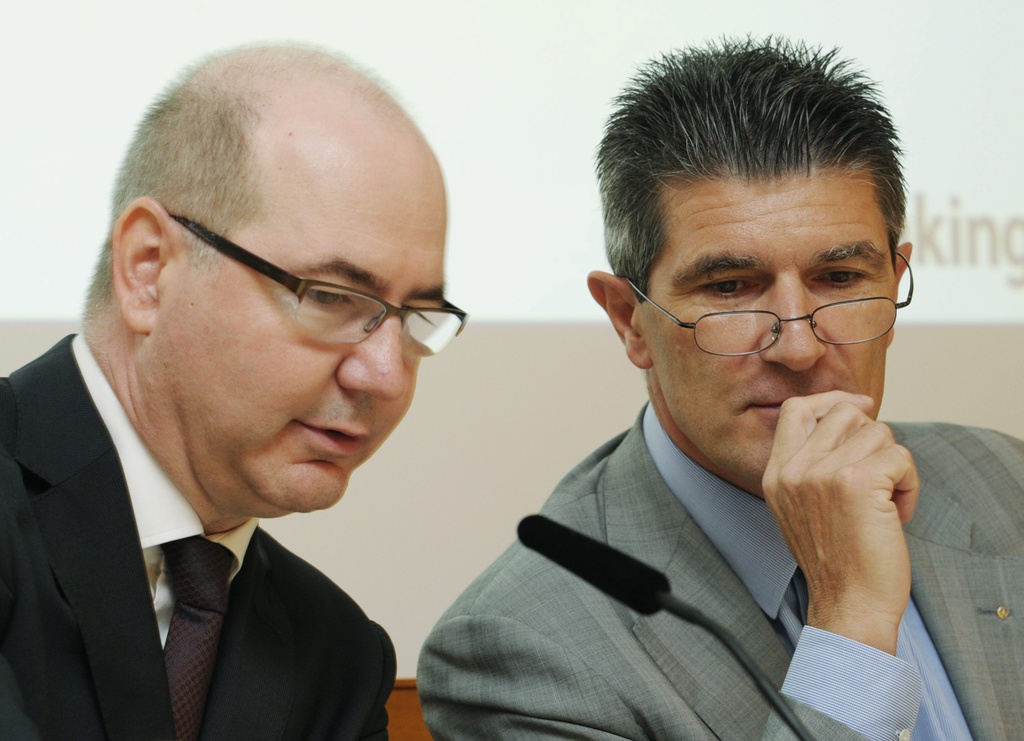Swiss risk escalation of tax dispute with US

Parliament this week put off a decision on settling a tax dispute with the United States as pressure grows over suspected wrongdoing involving several banks.
The delay could have an impact on ongoing talks between the two sides. The Senate stressed that it supported the government in reaching a negotiated solution, while political parties are divided over the consequences of a deal for Swiss banking secrecy.
The US authorities have warned they will take legal action against at least ten suspect banks by November unless a controversy over access to information on bank account holders is solved.
A key sticking point appears to be the conditions under which Switzerland will hand over data of US citizens with assets in Swiss banks who may be trying to dodge taxes.
The 1996 double taxation agreement (DTA), still in force, grants legal assistance in cases of suspected “tax fraud and the like”.
A new DTA extends the scope to include tax evasion backdated to September 2009. Negotiated two years ago the deal was approved by Switzerland, but not yet by the US.
As uncertainties persist over the exact extent of a possible data transfer, the government is formally calling on parliament to approve additions to the DTA.
A former finance minister, Hans-Rudolf Merz, has been widely criticised for saying in public that an account holder name was the key prerequisite for legal assistance following the government’s decision in 2009 to ease banking secrecy in line with standards of the Organisation for Economic Co-operation and Development. This was later considered an erroneous interpretation.
“Pattern of behaviour”
Based on a Swiss court ruling from the same year, the government argues now that data can also be handed over if account holders are identified from a “pattern of behaviour”, indicating suspicious actions on their part and on the part of a financial establishment.
The government argues that the new DTA can help resolve the ongoing dispute with Washington over untaxed assets. And it is ruling out other potential options to help banks in legal difficulties.
“We are not prepared to invoke emergency laws and there are no constitutional grounds for it. But don’t come to us in November or December once the situation has escalated,” Finance Minister Eveline Widmer-Schlumpf told the Senate on Wednesday.
Opponents of delaying a discussion of the government’s amendments to the DTA, including well-known senator Dick Marty, warned that the US authorities had plenty of reasons to be angry with certain Swiss banks.
The Swiss government says it is also not willing to negotiate a deal based – in one form or another – on an accord reached in the case of the UBS bank, arguing the situation and circumstances are different.
In 2009 Switzerland agreed to transfer the details of more than 4,400 US clients, suspected of violating US tax laws, to stave off a potentially disastrous legal action against UBS.
Specific agreement
The director of the Swiss Bankers Association, Claude-Alain Margelisch, said he was in favour of an accord with the US allowing the handing over of account details even if the holder is not identified by name.
In an interview, published in last Tuesday’s edition of the Basler Zeitung newspaper, Margelisch defended a specific agreement with Washington, but rejected calls from the centre-left political parties to grant other countries the same privilege.
“We have had a separate deal with America on taxation issues for many years, the so-called Qualified Intermediary Agreement,” he is quoted as saying.
He argued the proposed deal on legal assistance was compatible with rules on the protection of the private sphere of a bank customer.
“US customers always have an option. Either they declare their assets to the Internal Revenue Service or they are willing to pay a withholding tax of 35 per cent.”
Opposition
Switzerland’s centre-right and rightwing political parties are opposed to the government’s proposal.
The Radical Party – traditionally close to the business community – dismissed the government’s proposal as a “fishing expedition through the backdoor”.
The Swiss People’s Party warned the proposal was paving the way for a further easing of the cherished banking secrecy law, while the Christian Democrats said more information was needed before taking a decision.
While talks between the US and Swiss negotiators are set to continue, parliament will next meet at the regular winter session scheduled for December.
The cherished Swiss banking confidentiality laws have been under constant attack since the financial crisis of 2008-9.
With many developed – and indebted – countries seeing large holes blown in their tax revenues, cracking down on tax evasion suddenly became a priority.
In 2009, Switzerland was forced to concede enhanced information exchange and renegotiate a host of double taxation agreements to get off an Organisation for Co-operation and Development (OECD) black list of tax havens.
Also in 2009, UBS admitted to aiding and abetting US tax evaders and had to pay a hefty fine. The Swiss government was subsequently forced to hand over the names of 4,450 US clients of UBS to the US authorities.
Several countries, including Britain, Italy, the US and Germany, offered tax amnesties in 2009 and 2010 to give citizens the chance to come clean about tax evasion.
The search for tax cheats was helped by the illegal sale of Swiss bank client data by a whistleblower. Germany and France were the main purchasers of the controversial data CDs, but information was passed on to other countries.
The US is currently pursuing its clampdown on other Swiss banks. Credit Suisse was recently informed that it was under investigation, and several other banks, including canton-owned enterprises, are thought to have also fallen under the spotlight.
Switzerland in August reached tax deals with Germany and Britain. The accords are still subject to approval by the respective parliaments.
Earlier this month, Switzerland appears to have made progress in talks with Rome as Italy faces pressure by its Senate to sign a revised tax deal.
However, a deal is not within reach with neighbouring France to settle a controversy over untaxed assets.

In compliance with the JTI standards
More: SWI swissinfo.ch certified by the Journalism Trust Initiative














You can find an overview of ongoing debates with our journalists here . Please join us!
If you want to start a conversation about a topic raised in this article or want to report factual errors, email us at english@swissinfo.ch.